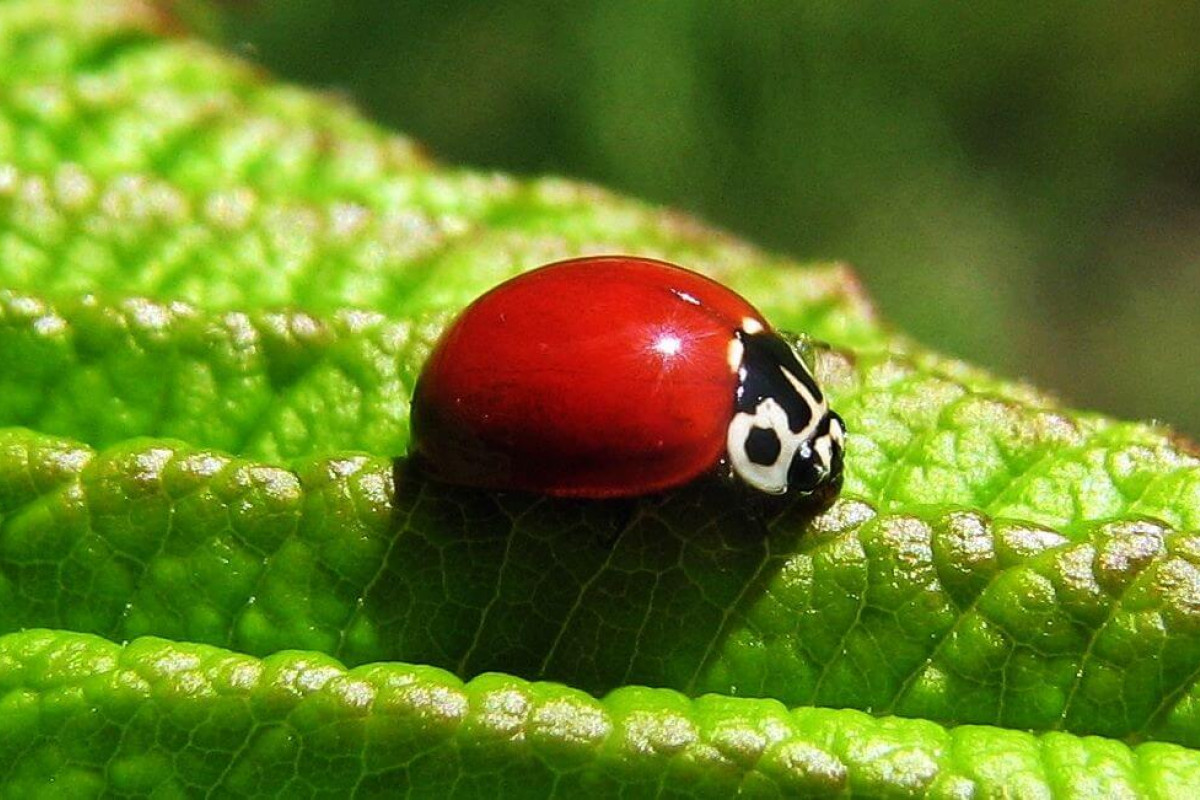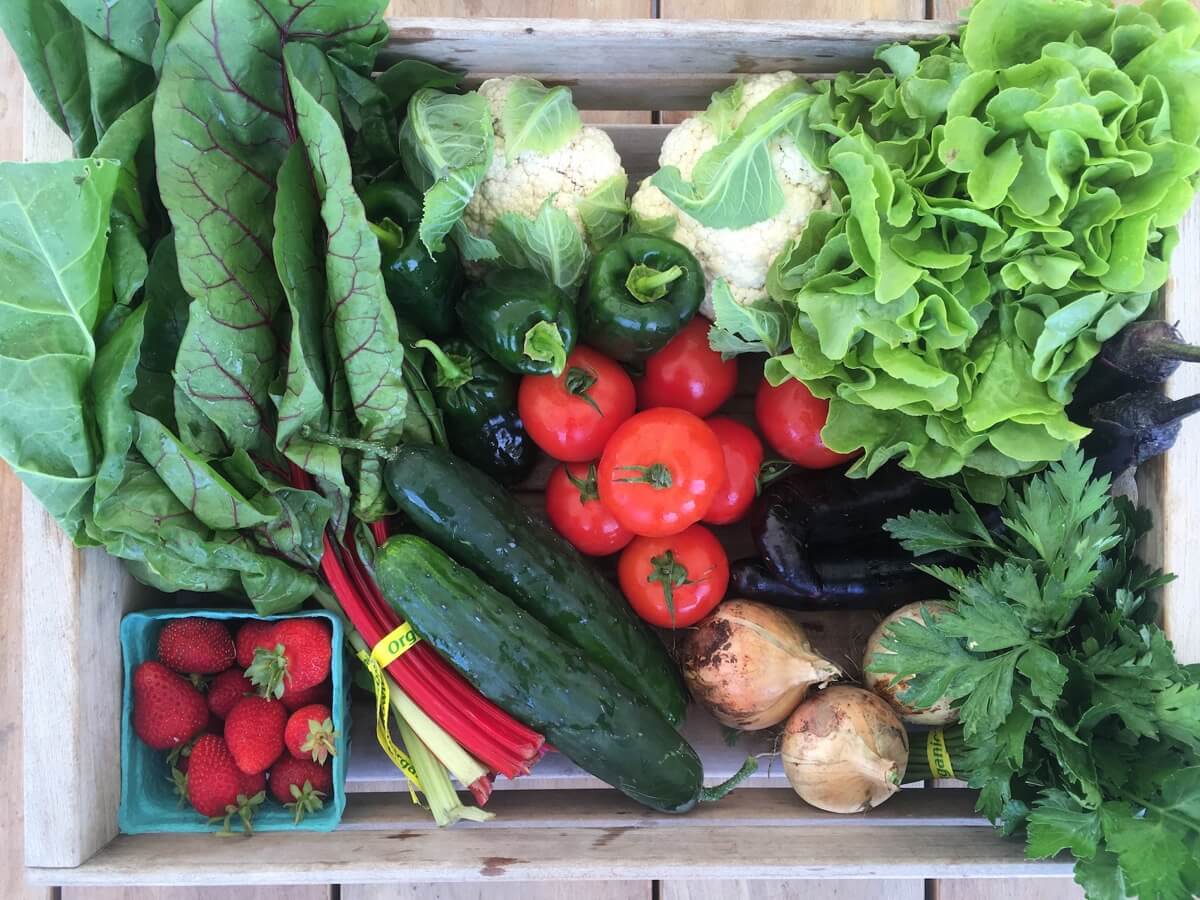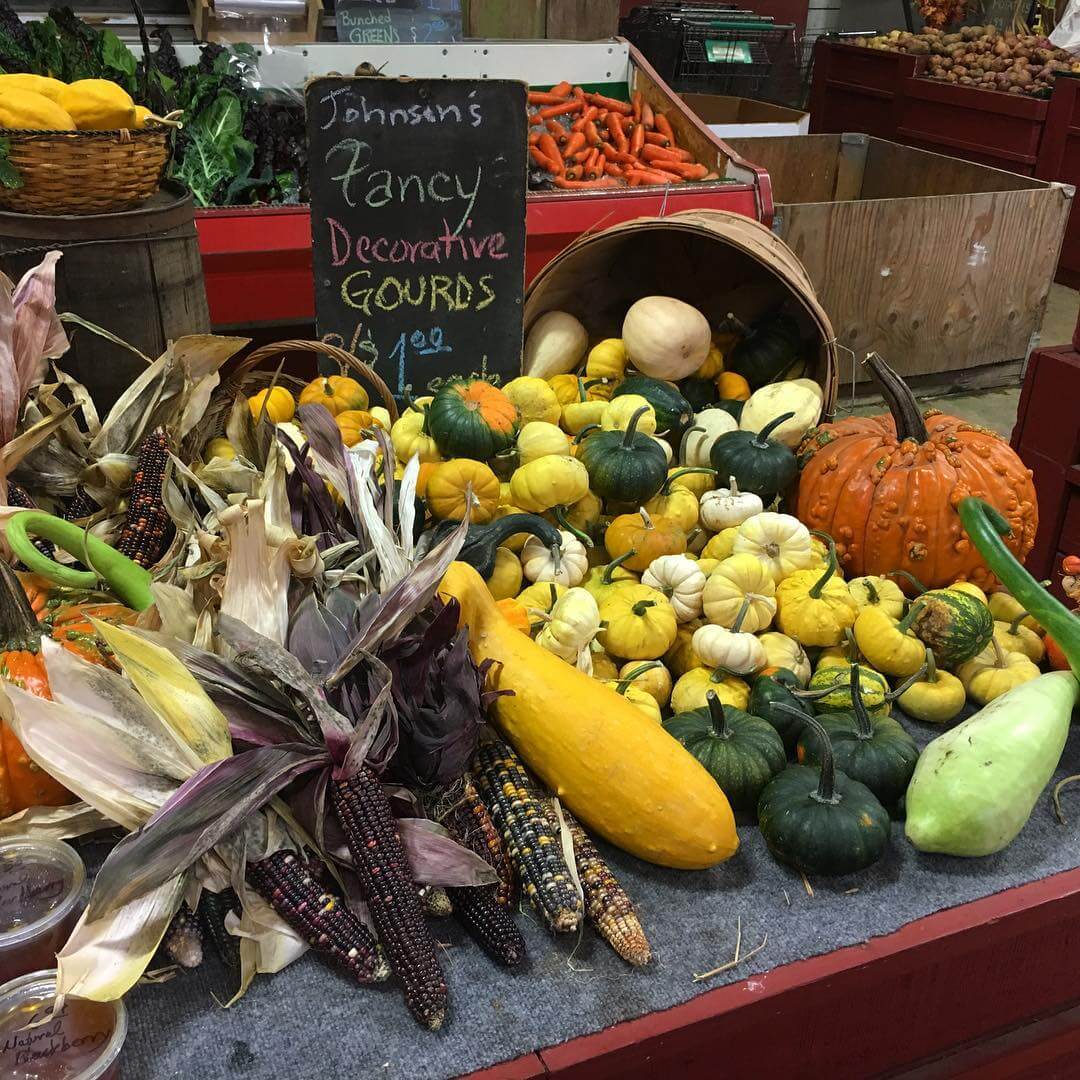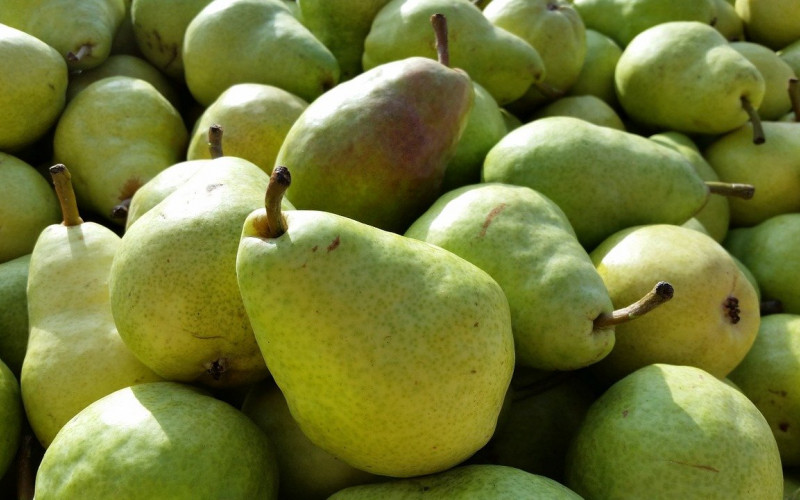Oregonians tend to know their way around kale and arugula, but what about some of the less common greens? A variety of Oregon salad greens are available year round, but with spring comes a welcome surge in the appearance of delicious and unique tender greens at farmers markets across the state.
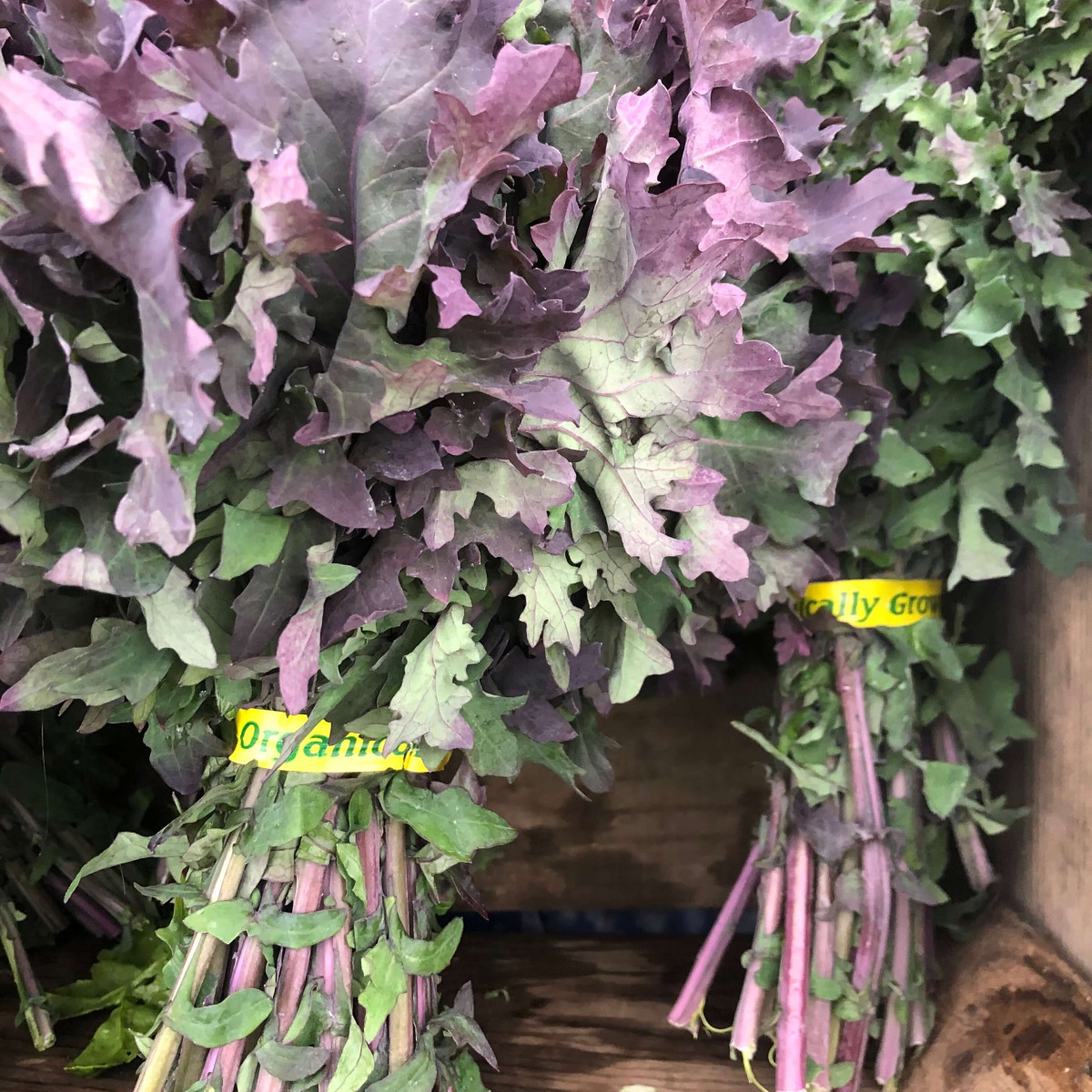
Look up "mustard greens" online and you'll find plenty of information about them. Like that mustard greens are a member of the Brassica family of plants, same as broccoli, cabbage, kale and collards (and another 3,700 or so species throughout the world), and that they contain loads of health-boosting nutrients and antioxidants.
Ask your local farmers market vendors instead and you'll get an experience—much more interesting, colorful and useful knowledge about them. And passionate ideas too! On a Saturday morning at Portland Farmers Market, Farmer Alicia of Gathering Together Farm of Philomath, Oregon responded animatedly to shopper curiosities about the variety of greens filling their farm stand wooden bins to the brim:
"Many of the mustards are almost horseradish like in flavor, but not quite, because right when it just starts to get slightly hot and you're like 'oh my gosh' then it fades right then to just a nice little kick of flavor. Great on eggs, potatoes, sandwiches, salads. They're all wonderful! There are a few mustards that are so mild, like green Mizuna and Bekana being particularly mild. Great for those who don’t like such a kick."
Throwing fresh farm greens in with your morning eggs or on a sandwich at lunch—things you are already making anyway? An excellent idea that I should have thought of but didn't. It's a way to feel adventurous trying something new from the local harvest, but in a simple, practical and doable way. More from Alicia:
"I use spring greens as a spring tonic. Natures way of ‘spring cleaning’ your system after a winter of rich root stews and roasting. I eat a bunch of some type of greens every day this time of year. Often just softly wilted into whatever else I’m cooking, as the less heat you use to cook most veggies the more nutrients you get."
These connections at the market are gifts that make you feel for a moment like a behind-the-scenes insider at the farm stand. It's like parents and grandparents teaching their children and grandchildren about their almost-lost-forever food-ways. It brings us into closer contact with our daily sustenance. Farmers, cheese and fish mongers, butchers, brewers, bakers and makers showcase local foods but also teach their uses in everyday culinary life. In a public farmers market setting like this, the convenient access to healthy, locally grown foods and connecting directly with local food growers in ways that most supermarkets never can achieve, is inspiring!
You might think you've never had a mustard green, but you may have without knowing it as they are common in mesclun salad mixes. There are many excellent varieties and types available with different leaf textures and colors that can add flavor to many foods you're already making at home.
Here are a few to get you started, but ask your local farmers market growers for their ideas!
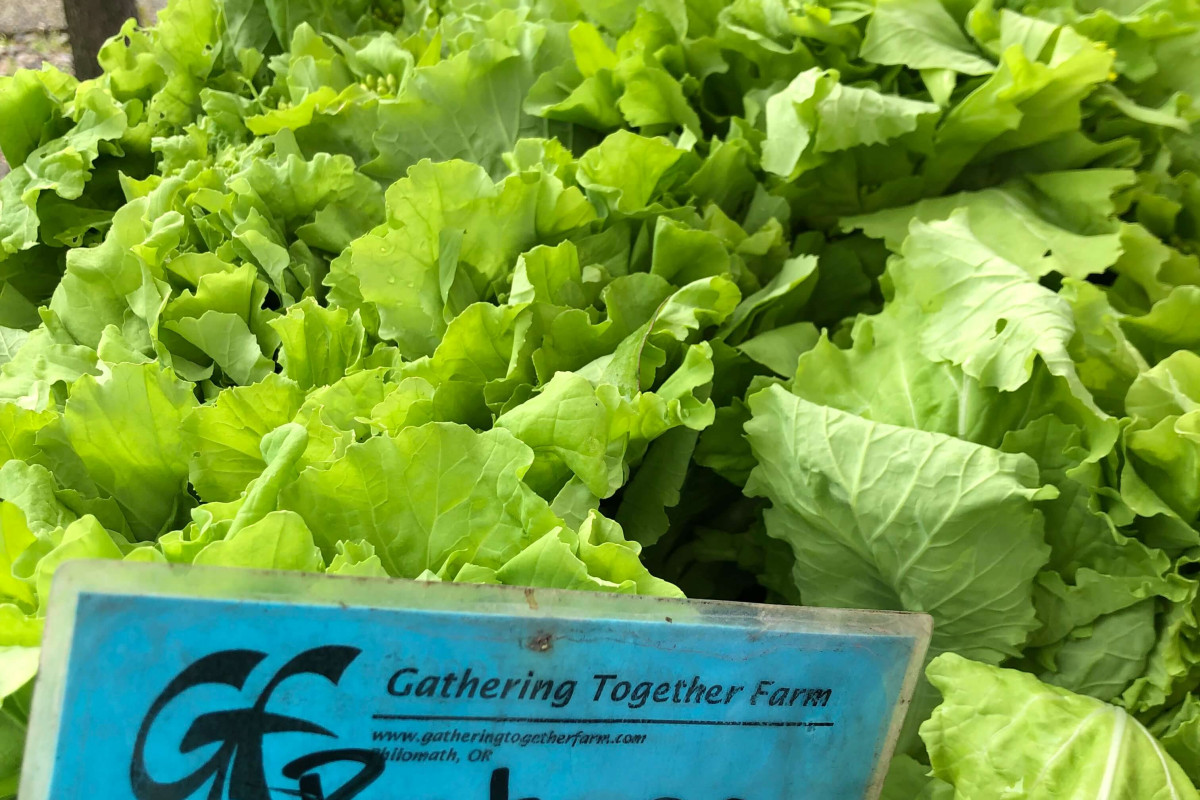
Bekana Mustard Green
Appearance: Often mistaken for lettuce, a brilliant chartreuse color and soft, ruffled leaves.
Flavor & Texture: A melt-in-your-mouth texture with a delicate flavor, neither hot nor bitter, mild nuances of pepper similar to the taste of spinach, and a bit of sweetness too.
Use: Harvest young for baby salad greens, mature lower part for soups, stir fries, slaw.
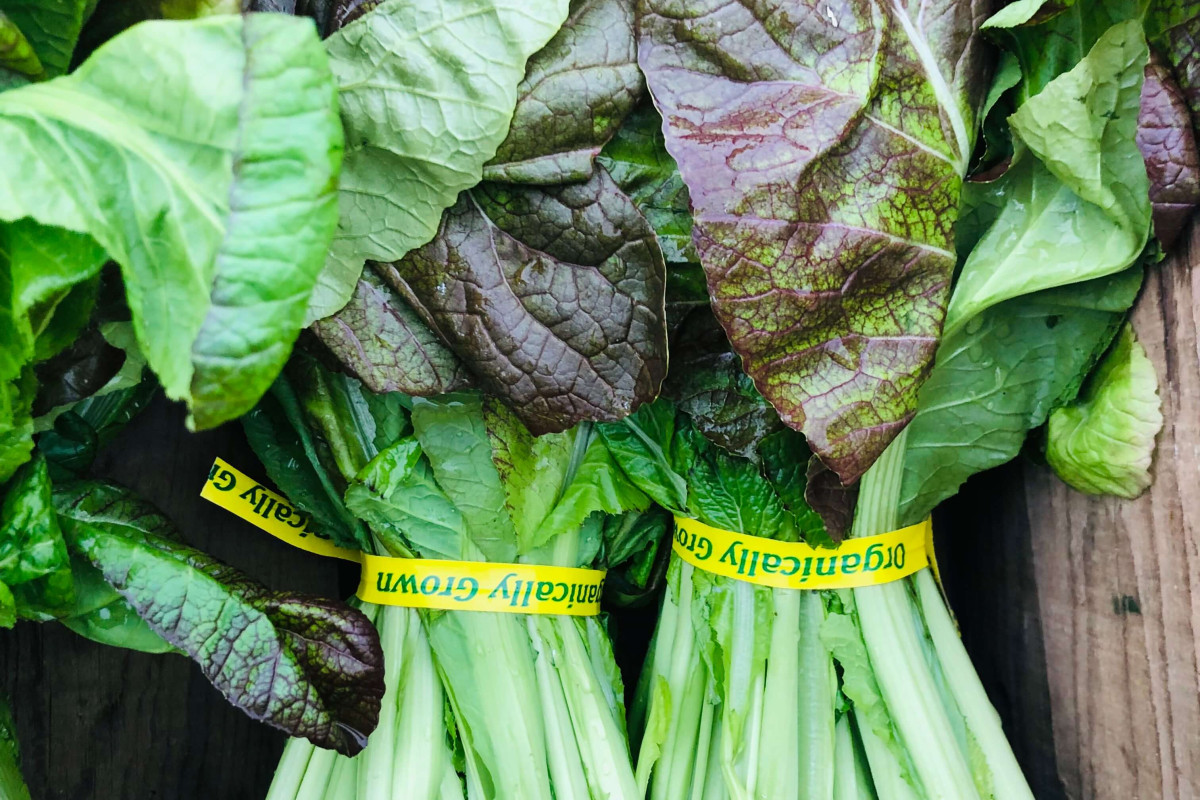
Dragon Tongue Mustard Green
Appearance: Sweet and jaw-dropping beauties with frilly, crinkled leaves, vibrant green with purple veins.
Flavor & Texture: Mostly mild flavor with a slight “mustardy” bite, the perfect balance of sweet and spicy. Tender and delicious when young, mildly spicy and sweet when mature.
Use: Raw as a salad ingredient or on sandwiches, or steam, boil, stir-fry.
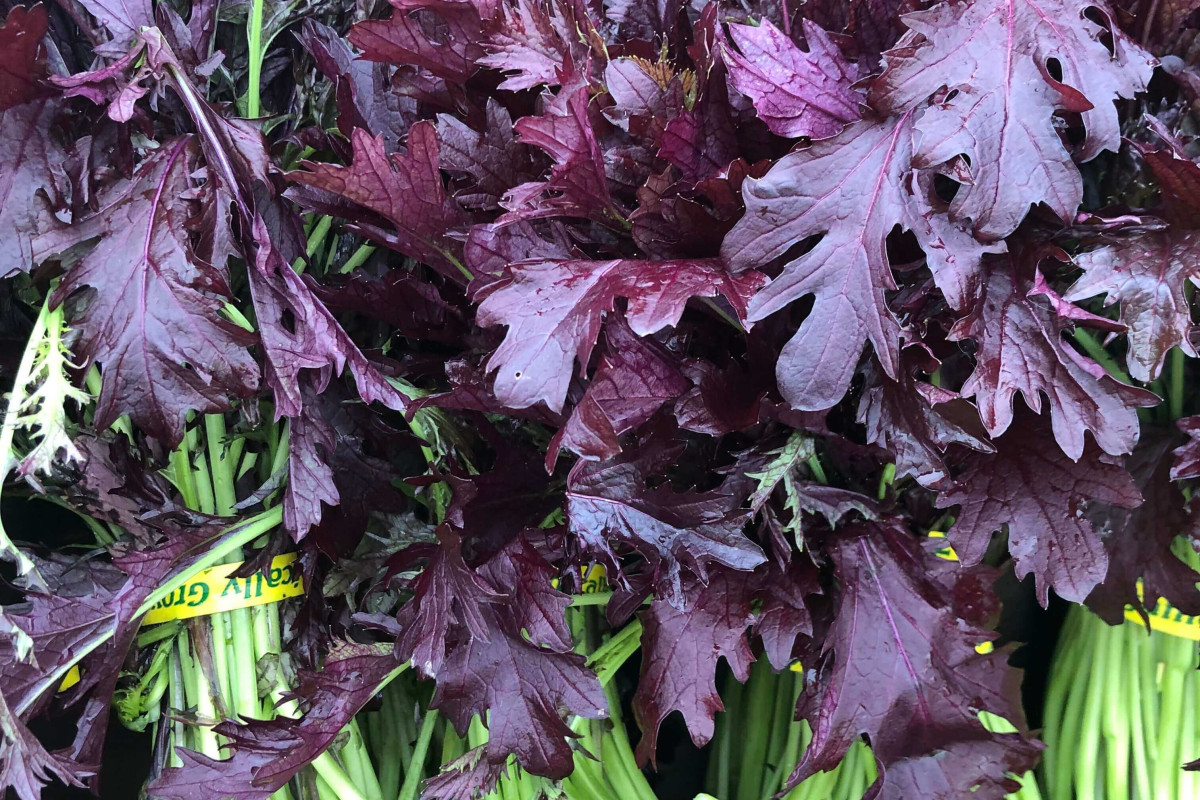
Miz America Mustard Green
Appearance: Serrated and fringed leaves are dark red on both sides.
Flavor & Texture: Delicate, slight peppery but sweet flavor.
Use: Wonderful for eating fresh in dishes like salads, on sandwiches. Seeds, leaves, and stems can all be eaten raw.
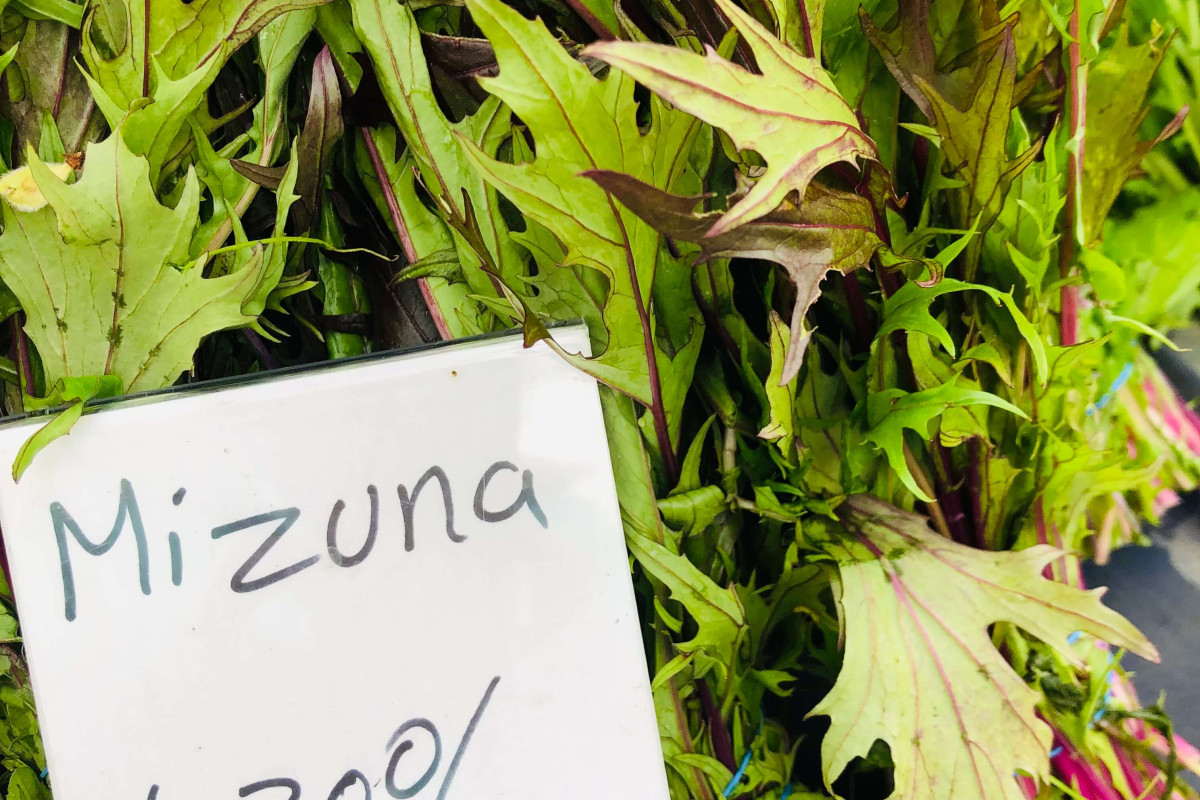
Mizuna
A type of Japanese mustard green. It’s another one of the many edible brassica plants like broccoli, kohlrabi, cabbage and kale.
Appearance: Dark green, serrated, feathered leaves and looks rather delicate.
Flavor & Texture: Peppery like arugula and slightly bitter, yet milder and sweeter than many of the more commonly found salad greens.
Use: Raw in salads or cooked add to stir-fries, pasta dishes, pizzas, and soups.
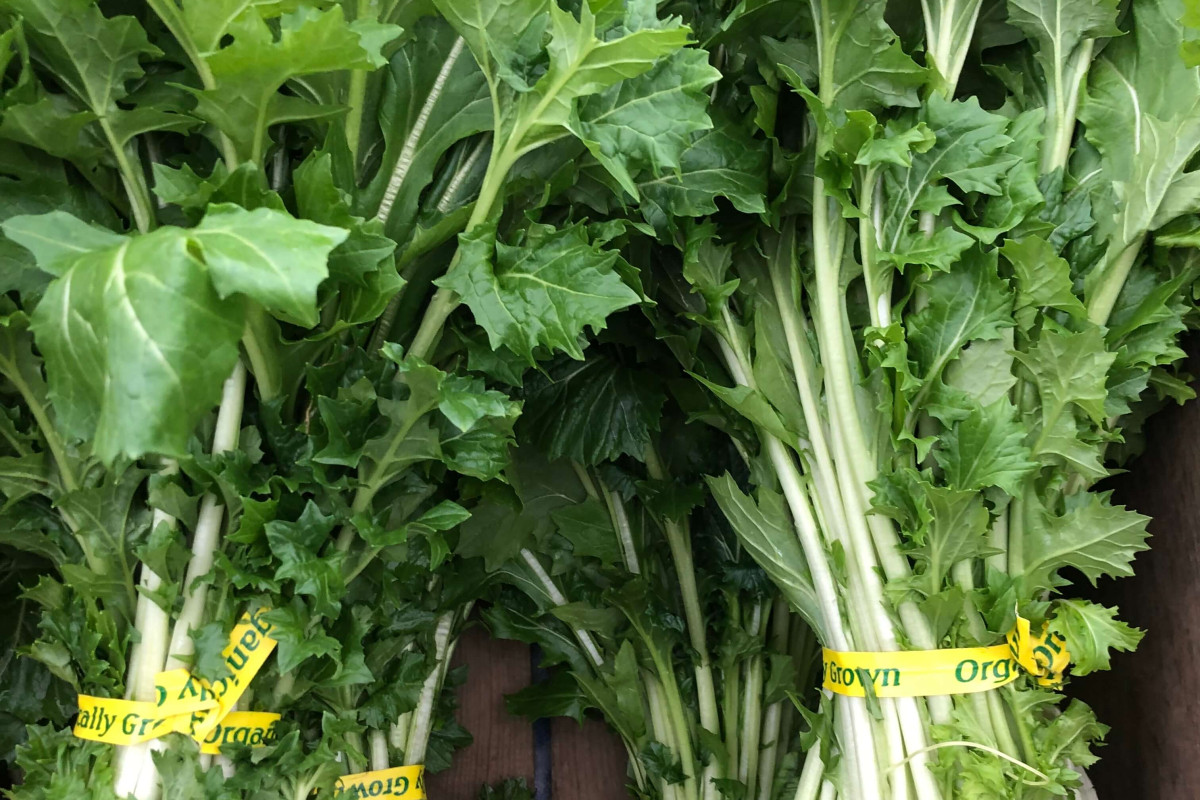
MIZSPOONA
A delightful blend of two of the finest mustard greens. Mizuna and Tatsoi together bring a mild mustard flavor that is delicious in salads and can be cooked. A great choice for the garden.
Appearance: Dark to emerald green leaves, some rounded some pointed.
Flavor & Texture: Moderate mustard flavor, neither hot nor bland, but sweet, juicy with a bit of zing.
Use: Salads, soups, stir-fries, braising.
Chef's Favorites:
Insalata di Caterina (Caterina’s Salad):
On a tip from one of our favorite local chefs, Amelia Hard, this recipe is a great use of spring greens that you've discovered at your local farmers market, or greens from your CSA box. Chef Amelia says mustard greens will work nicely in this recipe, but this salad benefits from the inclusion of as many different young greens as possible. It’s a Florentine recipe, more or less lifted from Faith Willinger’s Red, White and Greens, rumored to be named after Caterina de’ Medici, the Italian born queen of France in the 1500's.
Serves: 4-6
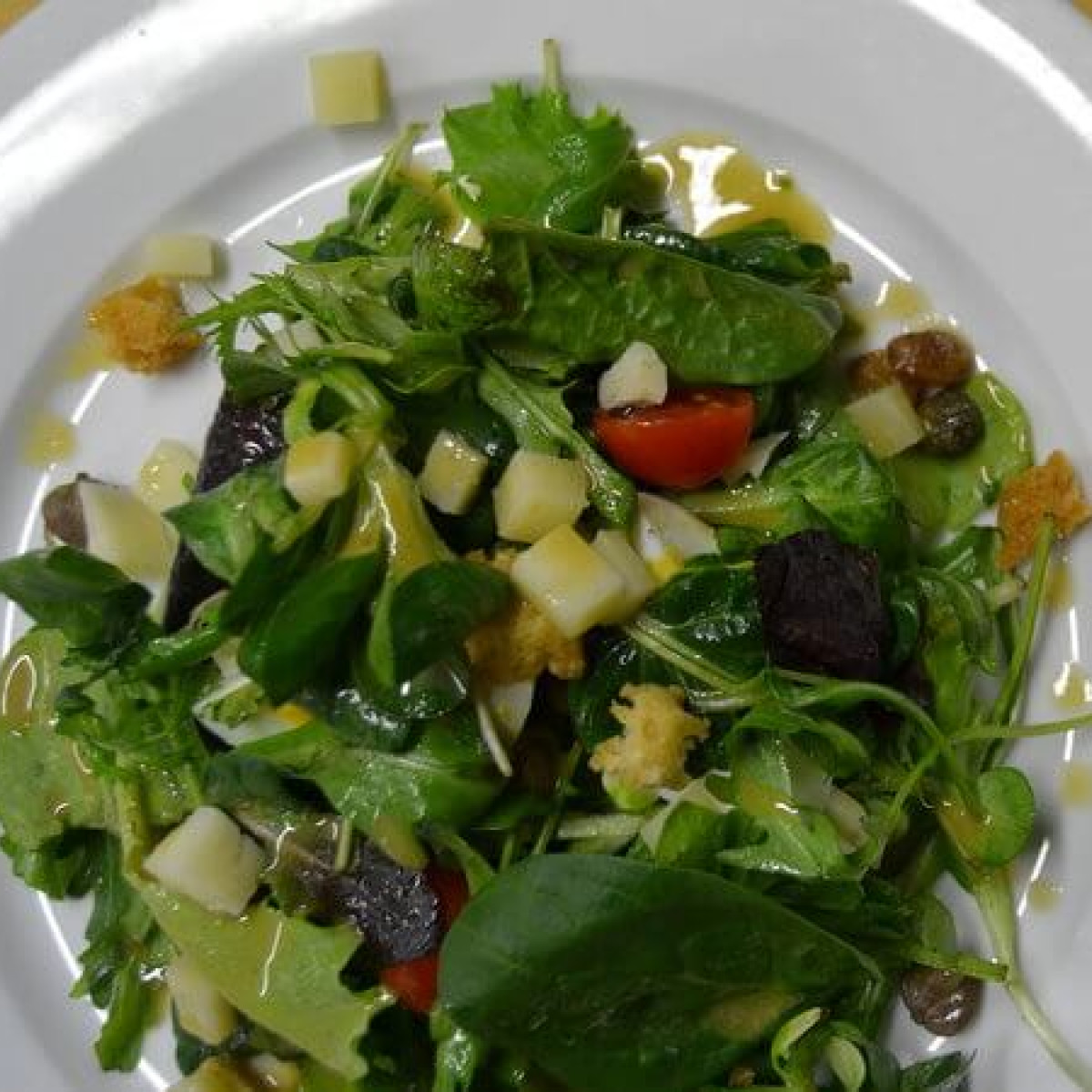
Ingredients:
1/2 pound tender young greens — the more variety, the better
1/2 cup diced young sheep cheese, or substitute goat cheese
3-4 oil-packed anchovy fillets, chopped
2 tablespoons capers, rinsed and drained
2 tablespoons pine nuts
1 tablespoon red wine vinegar
3-4 tablespoons extra virgin olive oil
fine sea salt to taste
freshly ground black pepper to taste
Directions:
Place the greens into a sinkful of tepid water and shake them gently in the water to clean them. When all the dirt settles to the bottom of the sink, lift out the greens and put them in a salad spinner to dry them off.
Tear any big leaves into bite-sized pieces.
Put them in a large bowl and toss with the chopped anchovies, capers, and pine nuts.
Whisk together the vinegar and oil and season the dressing to taste. Pour over the salad and toss well, then serve immediately.
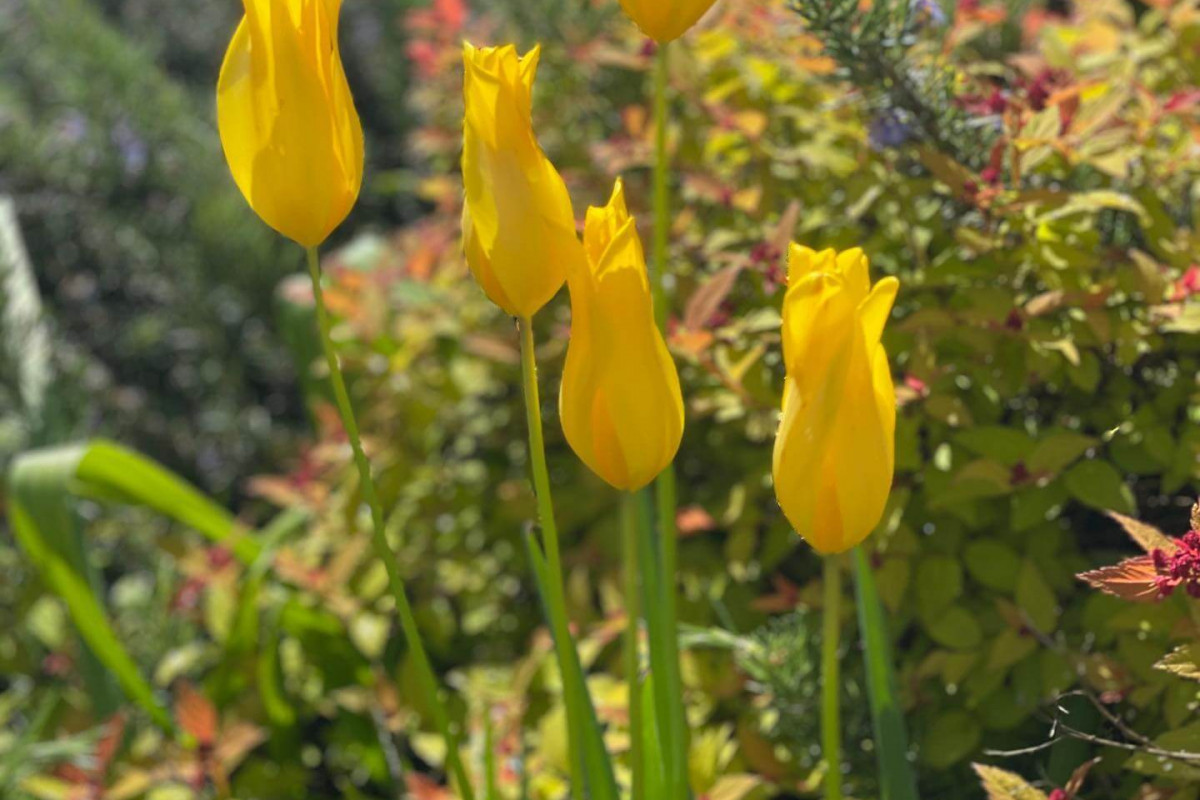
.jpeg)
